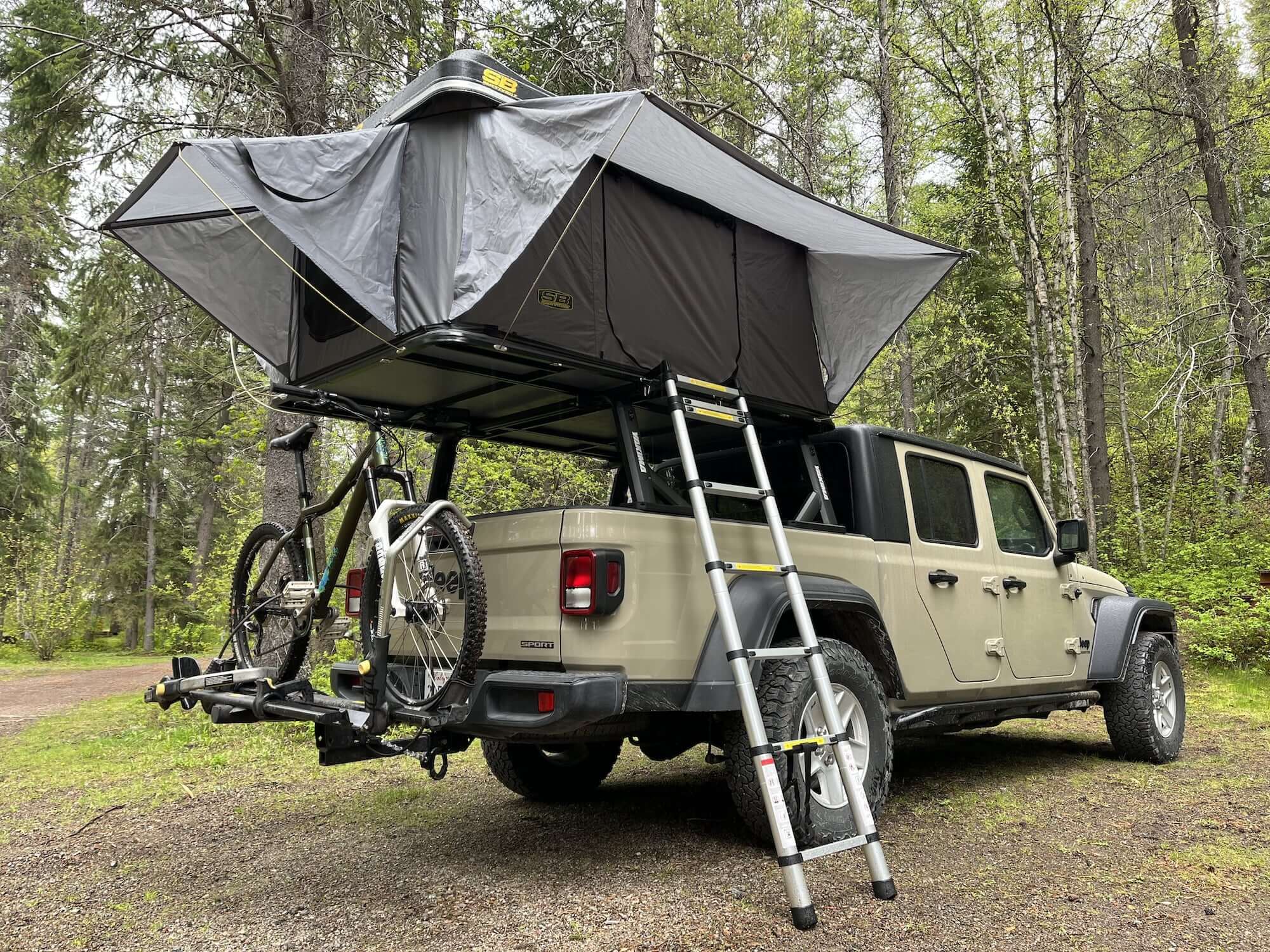
What is overlanding? You may have come across this term at some stage and wondered how it differs from off-roading. In this article, we’ll explain everything you need to know about overlanding. We will present two options for an overlanding truck setup: the full-size truck overlanding setup and the mid-size setup. Firstly, let’s find out what overlanding is.
According to The Overland Journal, overlanding is the act of self-reliant travel to remote destinations where the journey is the primary goal. The principal form of lodging is camping. With this, you can see that overlanding could ostensibly include paved asphalt roads, as well as off-road elements. It’s all up to you, really. You choose where you want to go and how you get there. Since you’re overlanding in a truck, you may choose to set up your living quarters in the truck bed.
So should you choose to overland with a full-size or mid-size truck? That’s the question we are going to answer in the following few sections.
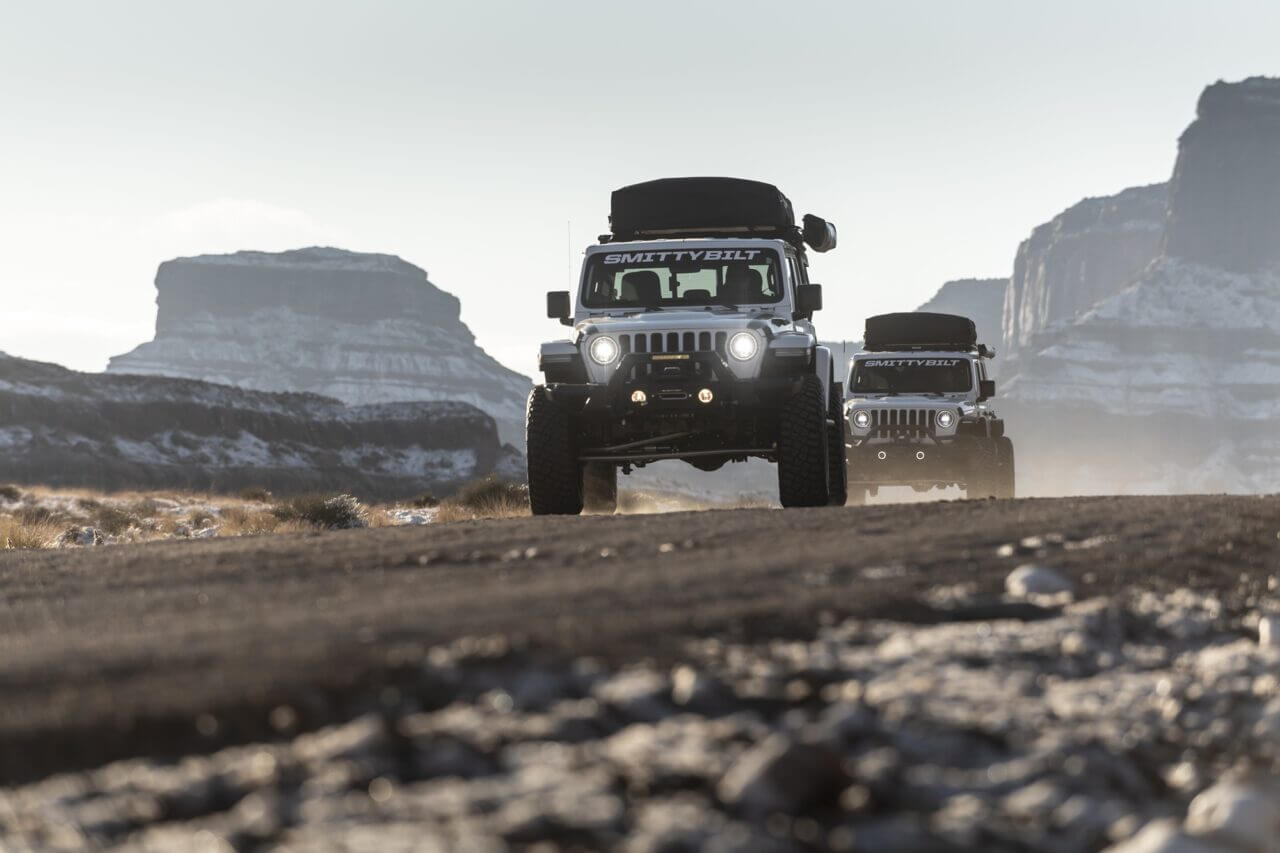
Overlanding a Full-Size Truck
What is a full-size truck? Contrary to what you may think, it’s not just about sheer physical size in terms of length, width, and height. Defining a truck as full size or mid-size is done based on its GVW, or Gross Vehicle Weight. That’s the weight of the vehicle with fuel and fluids, plus all occupants and cargo. The Federal Regulation for Classes of Comparative Automobiles defines a full-size truck as having a GVW of between 6,000 and 8,500 pounds. If the GVW exceeds 8,500 pounds, it enters the class known as Special Purpose Vehicles.
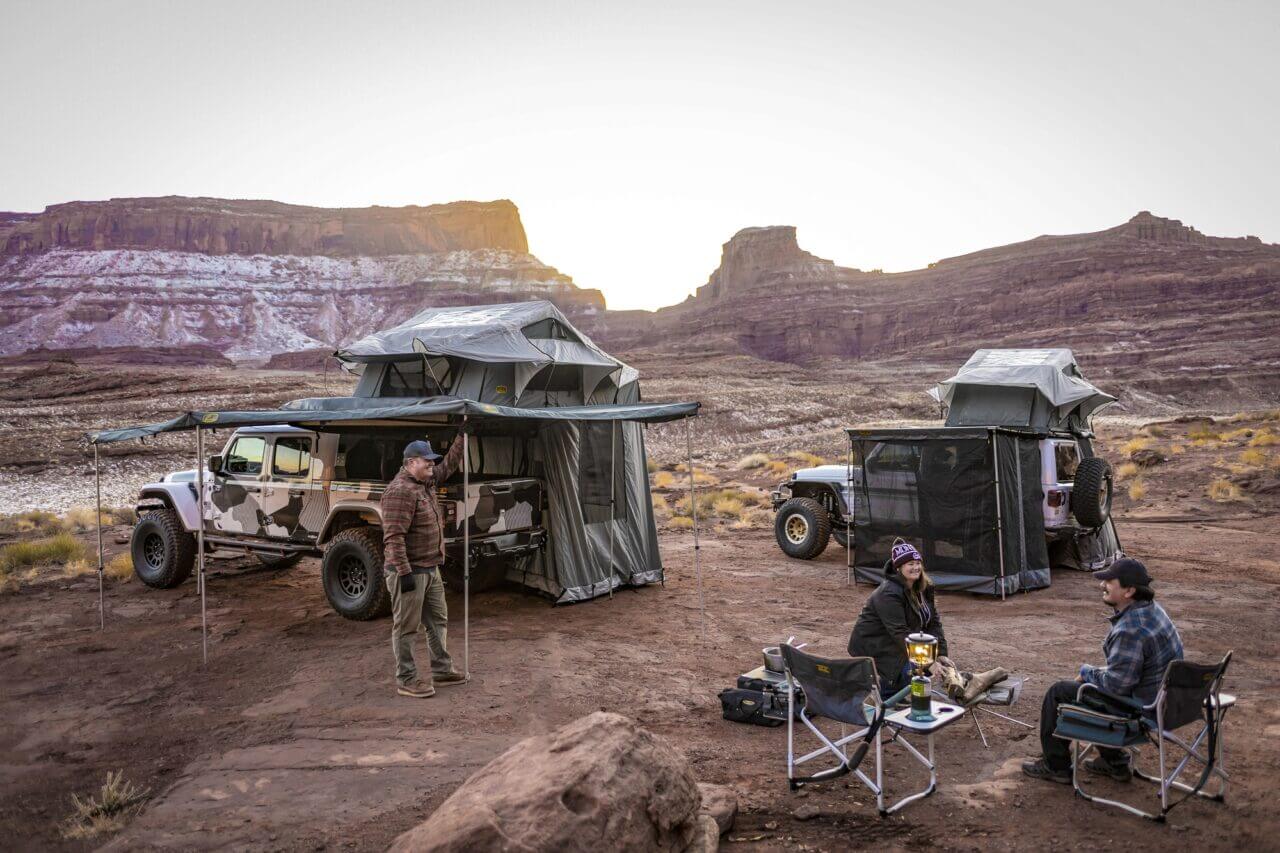
Pros & Cons Overlanding a Full-Size Truck
Now that we’ve got the technicalities of the full-size truck down, why would you want to overland in one? Here are the pros and cons.
Pros
- Ample space for plenty of gear, allowing you to emulate a home as closely as possible.
- Larger cabin so you can stretch out, sleep, and potentially use it as your living space, leaving the bed for cargo.
- Better for overlanding as a family.
- Larger fuel tanks, allowing for potentially greater range.
- Better performance and towing capacity due to larger engines and beefier powertrains.
- Bed carrying capacities tend to be better, typically 2,000 pounds or more.
Cons
- More expensive to purchase and run than a mid-size truck
- The sheer size can be an issue on smaller roads or trails
- Not necessarily more capable off-road than a mid-size – in fact, it may be less competent due to size.
- Thirstier due to larger engine and higher GVW.
- Some trails and roads may have GVW limits, which your full-size truck may exceed.
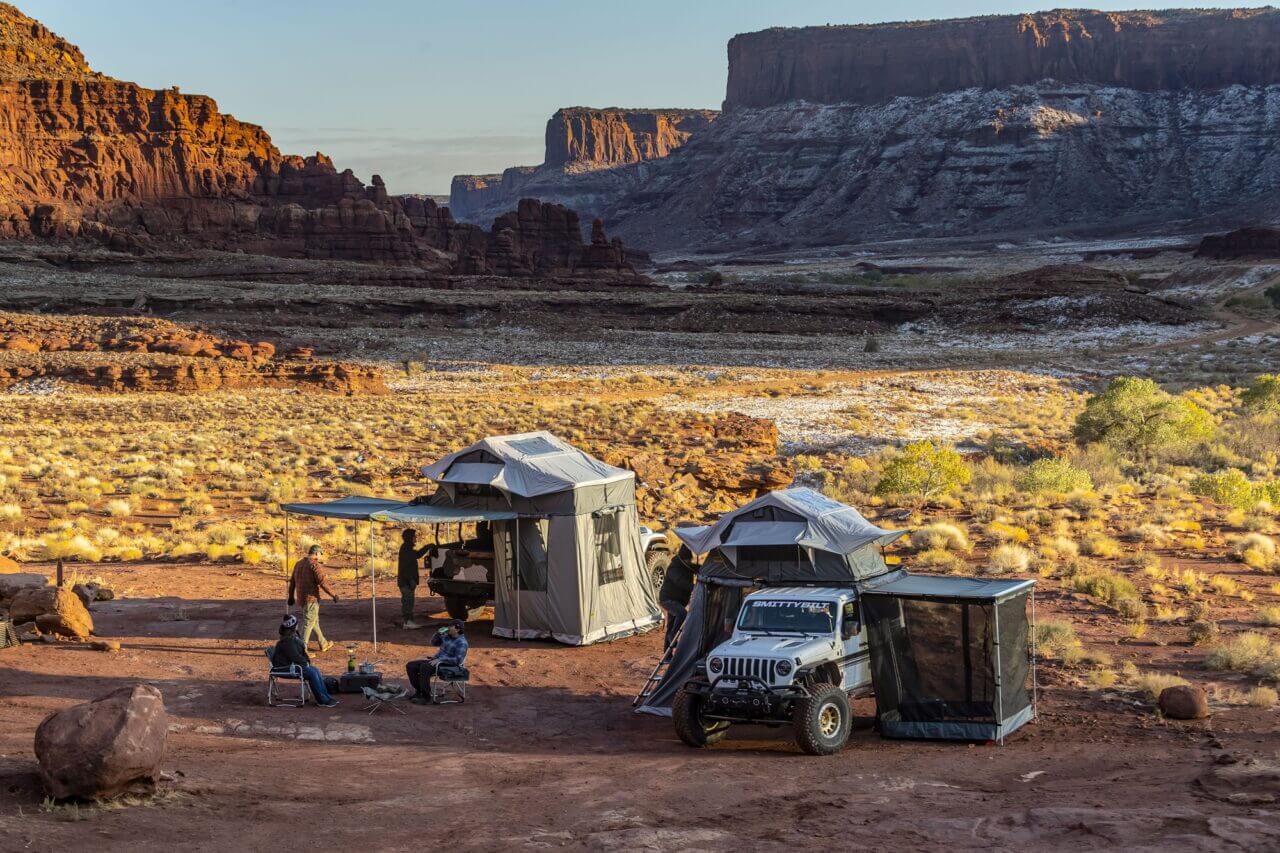
Overlanding a Mid-Size Truck
The mid-size truck is classified as such if it has a GVW below 6,000 pounds. A mid-size truck will typically have smaller exterior dimensions than a full-size truck, although the segment is becoming larger dimensionally. Let’s examine the pros and cons of overlanding with a mid-size truck.
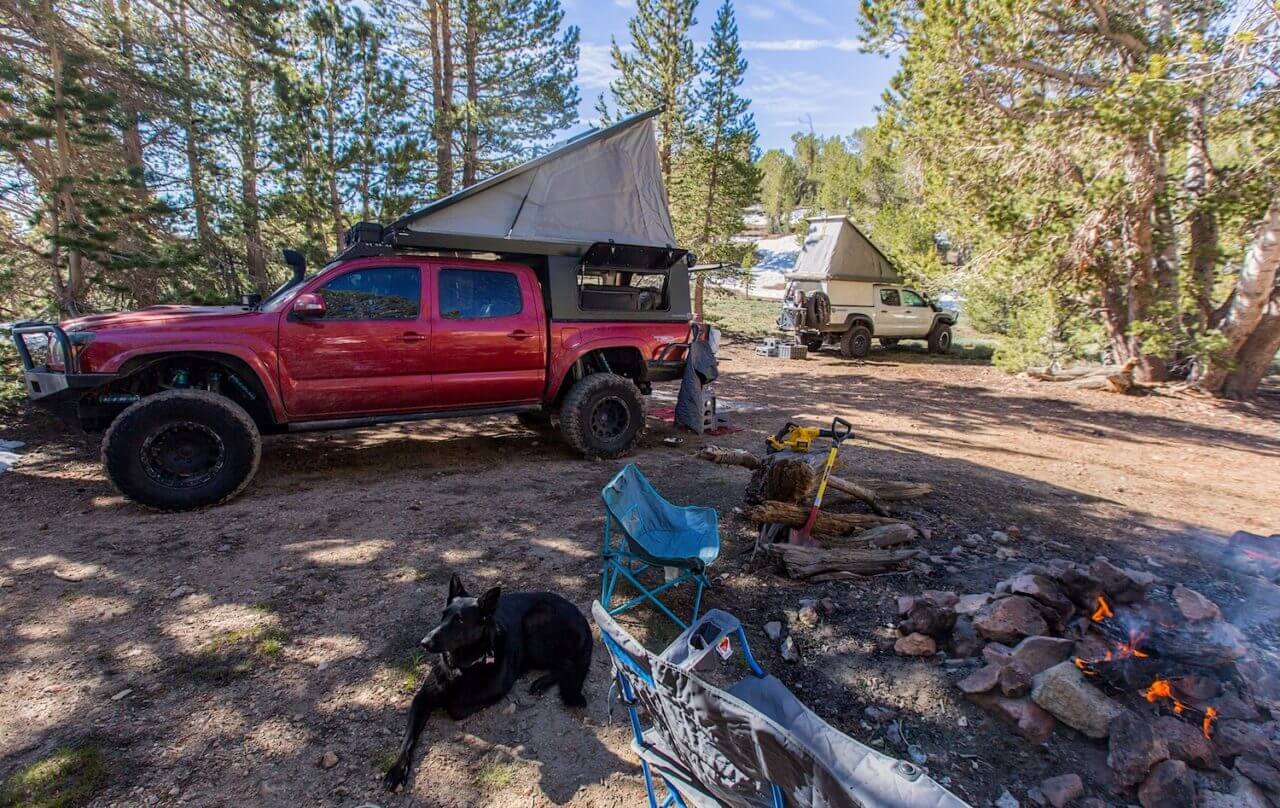
Pros & Cons Overlanding a Mid-Size Truck
As you’d imagine, there are pros and cons for mid-size trucks too.
Pros
- Better fuel economy due to smaller engines and lower GVW
- More agile off-road due to smaller size and lower GVW
- Can access trails and roads that may not allow full-size trucks.
- Cheaper to purchase and maintain.
Cons
- Less space in the cabin, so your tent may have to be mounted in the bed, reducing your cargo carrying capacity.
- Bed capacity will be lower, typically 1,000 to 1,500 pounds.
- Lower towing capacity.
- More suited to overland solo, or duo, as more than two persons with cargo can be tight.
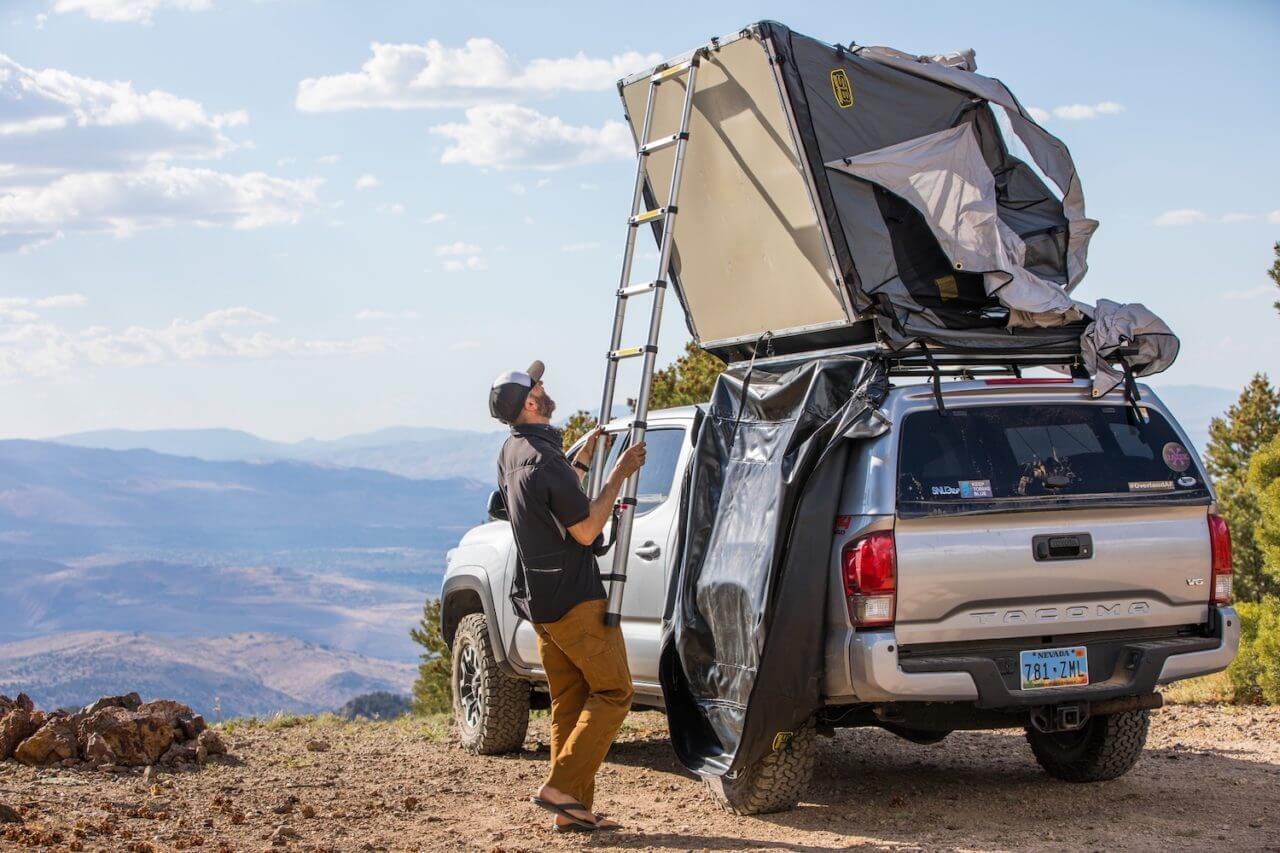
Which One is Better?
Based on the above, you can see that there’s no clear answer. It’s tempting to go full size and enjoy the increased space, comfort, and sheer road presence for some, but a mid-size will likely take you further off the beaten trail, and you will see interesting sights that you wouldn’t dream of venturing near in a bulky full sizer.

What Should I Consider On An Overlander?
Here are a few things you should consider on an overlander, regardless of if it’s a full or mid-size.
- Choose your route and tires accordingly. You don’t want to suffer 300 miles of tarmac on mud tires just for five miles of mudding. An all-terrain tire might be your best bet, coupled with avoiding the muddy patch. Remember that you most likely can’t carry an additional set of tires.
- Upgrade your truck accordingly. This includes suspension upgrades, lifts if necessary, wheels and tires, skid plates and underbelly protection, bumpers, upgraded lighting, and a winch. There are more things which our friendly team can advise you on so give us a call.
- Don’t forget to give your truck a thorough once-over before you start your journey, ensuring that it’s mechanically sound, serviced, and in peak condition.
- Check the weather reports for your preferred route. You don’t want to get caught up in some extreme weather.
- For the best overlanding and camping gear, head over to our dedicated section for ideas on what you’d need, including tents, coolers, storage solutions, flashlights, and recovery equipment.

4 Wheel Parts Can Cater to All Your Overlanding Needs
Whether you pick a mid-size or full-size truck as your trusty overlanding companion, come to 4 Wheel Parts for everything you need to turn it into the best overlander for your requirements. We’ve got thousands of parts from hundreds of renowned manufacturers just waiting for you at our 100+ stores located nationwide, or you can browse the website, compare, and purchase to your heart’s content. Whichever option you choose, you’re availing yourself of our world-class service, price matching policy, and friendly expert advice that’s available at all times. Choose 4 Wheel Parts and rest easy on your overland journey.



2